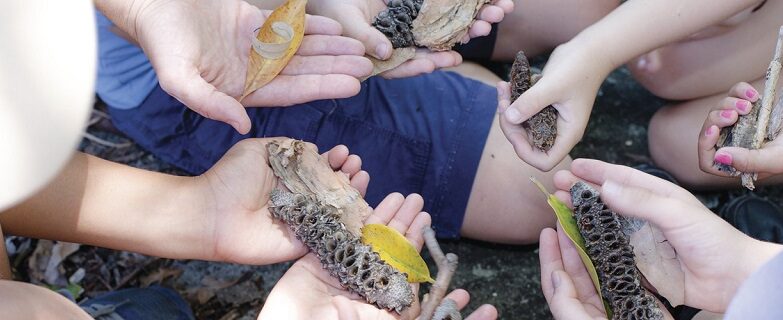Are you someone who has experienced feeling sleepy after consuming reishi? You’re not alone. Reishi, also known as Ganoderma lucidum, is a medicinal mushroom that has been used in traditional Chinese medicine for centuries. While it offers numerous health benefits, one common side effect reported by some individuals is drowsiness or sleepiness. In this article, we will explore the reasons behind this phenomenon and delve into the potential mechanisms that contribute to feeling sleepy after consuming reishi. This article is presented by https://depressiontrouble.com/
Understanding Reishi
Before we dive into the sleep-inducing effects of reishi, let’s gain a better understanding of this remarkable mushroom. Reishi mushroom is a woody fungus that grows in various parts of the world, including Asia, Europe, and North America. It is renowned for its potential therapeutic properties and has been extensively studied for its immune-boosting, antioxidant, and anti-inflammatory effects.
The Role of Triterpenes
One of the key components in reishi responsible for its beneficial effects is a group of compounds known as triterpenes. Triterpenes are bioactive compounds found in many plants and fungi, and they are believed to contribute to the sedative properties of reishi. Some triterpenes, such as ganoderic acid, have been shown to interact with certain neurotransmitters in the brain, potentially leading to a calming and relaxing effect.
Promoting a State of Relaxation
Reishi has been traditionally used to promote relaxation and improve sleep quality. It is believed that the calming properties of reishi may be attributed to its ability to interact with the gamma-aminobutyric acid (GABA) receptors in the brain. GABA is a neurotransmitter known for its inhibitory effects, which help to regulate sleep and promote feelings of calmness.
Modulating the Stress Response
Another factor that may contribute to the sleep-inducing effects of reishi is its ability to modulate the body’s stress response. Chronic stress can disrupt sleep patterns and contribute to insomnia. Reishi has been found to regulate the stress hormone cortisol, which plays a crucial role in the body’s response to stress. By reducing cortisol levels, reishi may help promote relaxation and improve sleep quality.
Individual Variations
It’s important to note that not everyone experiences drowsiness or sleepiness after consuming reishi. Individual variations in metabolism, sensitivity, and overall health can influence how the body responds to this medicinal mushroom. While some individuals may find reishi to be relaxing and sleep-inducing, others may not experience any noticeable effects on their sleep patterns.
Optimal Timing and Dosage
If you’re interested in incorporating reishi into your routine but are concerned about its potential sleep-inducing effects, it’s essential to consider the timing and dosage. Taking reishi supplements in the evening or before bedtime may increase the likelihood of experiencing drowsiness. However, if you prefer to enjoy the benefits of reishi during the day, a lower dosage or consuming it alongside other energizing ingredients may help mitigate any potential sleepiness.
In conclusion, while reishi is generally well-tolerated and offers a wide range of health benefits, some individuals may experience sleepiness or drowsiness after consuming it. This effect may be attributed to the presence of triterpenes, which interact with neurotransmitters and promote relaxation. Additionally, reishi’s ability to modulate the stress response and promote a state of calmness may also contribute to its sleep-inducing properties. It’s important to consider individual variations and optimal timing when incorporating reishi into your routine to achieve the desired effects without compromising your sleep patterns.
FAQs (Frequently Asked Questions)
- Can reishi help with insomnia?
While reishi is known for its potential sleep-inducing effects, its effectiveness in treating chronic insomnia has not been extensively studied. It’s best to consult with a healthcare professional if you’re seeking treatment for insomnia.
- Are there any side effects of consuming reishi?
Reishi is generally safe for most people when taken in appropriate dosages. However, some individuals may experience mild side effects such as upset stomach, diarrhea, or skin rashes. If you experience any adverse reactions, it’s advisable to discontinue use and consult a healthcare provider.
- Can I take reishi if I’m already taking sleep medications?
It’s important to consult with your healthcare provider before combining reishi with any sleep medications or other supplements. They can provide guidance on potential interactions and help ensure your safety.
- How long does it take for reishi to start working?
The onset of reishi’s effects may vary from person to person. Some individuals may experience noticeable effects within a few days, while others may require several weeks of consistent use to experience the full benefits.
- Can I consume reishi if I have a medical condition?
If you have any underlying medical conditions or are taking medications, it’s crucial to consult with your healthcare provider before incorporating reishi into your routine. They can assess your individual situation and provide personalized recommendations.








